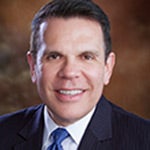Hospitalists collaborate for best care
Published 1:39 am Friday, July 15, 2016
By JOHN YANES
Imagine your reaction if one day your boss came to you and said, “You’re really doing a good job. As a reward, we’re going to let you operate out of two separate offices on the opposite sides of town.” You’d still give the same level of effort and be great at your job, but driving between locations would make your days much more hectic and would compromise your productivity.
 This scenario sounds irrational, but we ask the same of our doctors every day. A physician may have a waiting room full of people, but if a patient has an emergency and is taken to the hospital, the physician must stop what he or she is doing and head to the hospital to see that patient.
This scenario sounds irrational, but we ask the same of our doctors every day. A physician may have a waiting room full of people, but if a patient has an emergency and is taken to the hospital, the physician must stop what he or she is doing and head to the hospital to see that patient.
At Andalusia Health, like many hospitals across the nation, we think there is a more effective solution. In May 2016, we introduced a new hospitalist program at our facility, and the results for our hospital, physicians, and patients throughout our community have been great.
Hospitalists are fully certified, trained physicians who work full-time at the hospital treating patients. They can provide comprehensive and immediate care without worrying about the need to return to their office to see waiting patients. Utilizing hospitalists means that it is unlikely that you will see your primary care physician at the hospital. Instead, the hospitalist on staff at the hospital will focus on your hospitalization and will treat you.
Hospitalists don’t replace your primary care physician, but they work in close communication and partnership with him or her collaborating to make sure you get the most effective treatment at the moment you need it. The use of hospitalists has been especially effective in monitoring patients with medical conditions such as stroke patients who need to be observed around the clock.
So much of healthcare happens outside the hospital, and physicians in our community are pleased about the hospitalist program, because it provides them with the option of using the hospitalist service so they can focus on providing essential care in the community knowing that their patients are getting quality care at the hospital. Physicians on the medical staff at Andalusia Health are not required to use the hospitalist service. I am very excited about the new hospitalist program because it gives our medical staff one more option to help them manage their multiple demands and hectic schedules. As a model for delivering healthcare, hospitalists are gaining in popularity. Ten years ago, there were only about 12,000 hospitalists across the country. Today, there are nearly 35,000 and the number is growing.
Dr. Heath Parker, medical director for Andalusia Health’s Hospitalist program, summed up the benefits of a hospitalist program best when he recently told me: “Andalusia Health’s hospitalist program is a wonderful resource that is allowing the medical community to work together to enhance the care provided in this region.” A greater number of Andalusia Health physicians appreciate the hospitalists because they concentrate solely on hospitalized patients, which allows the other physicians to focus on their patients in the community and ultimately they are able to see more people and address more healthcare needs every day.
Andalusia Health has three hospitalists and two nurse practitioners who provide care for patients around the clock, seven days a week. In addition to Dr. Parker, Dr. Rainer Birk and Dr Erica George-Santilus, nurse practitioners Marc Chatman and Robin Livingston care for patients from the time of admission to discharge, ensuring prompt medical attention for all patients when needed.
I encourage everyone to learn more about hospitalists and how they are partnering with our hospital and healthcare providers across this region to make communities healthier.
For more information, visit the Andalusia Health website at www.andalusiahealth.com.
John C. Yanes, FACHE, is chief executive officer of Andalusia Health.

